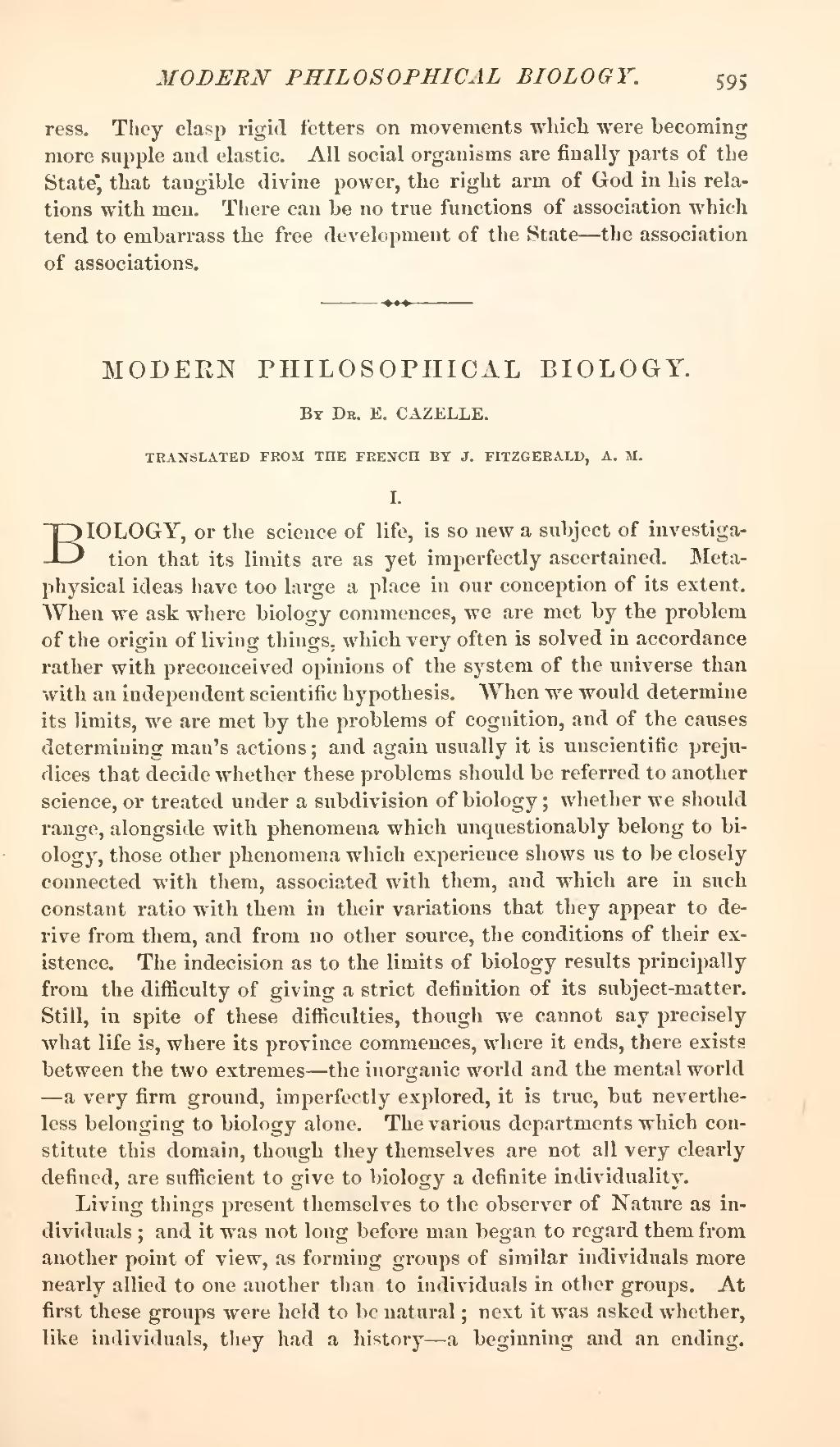ress. They clasp rigid fetters on movements which were becoming more supple and elastic. All social organisms are finally parts of the State* that tangible divine power, the right arm of God in his relations with men. There can be no true functions of association which tend to embarrass the free development of the State—the association of associations.
| MODERN PHILOSOPHICAL BIOLOGY. |
By Dr. E. CAZELLE.
TRANSLATED FROM THE FRENCH BY J. FITZGERALD, A. M.
I.
BIOLOGY, or the science of life, is so new a subject of investigation that its limits are as yet imperfectly ascertained. Metaphysical ideas have too large a place in our conception of its extent. When we ask where biology commences, we are met by the problem of the origin of living: things. which very often is solved in accordance rather with preconceived opinions of the system of the universe than with an independent scientific hypothesis. When we would determine its limits, we are met by the problems of cognition, and of the causes determining man's actions; and again usually it is unscientific prejudices that decide whether these problems should be referred to another science, or treated under a subdivision of biology; whether we should range, alongside with phenomena which unquestionably belong to biology, those other phenomena which experience shows us to be closely connected with them, associated with them, and which are in such constant ratio with them in their variations that they appear to derive from them, and from no other source, the conditions of their existence. The indecision as to the limits of biology results principally from the difficulty of giving a strict definition of its subject-matter. Still, in spite of these difficulties, though we cannot say precisely what life is, where its province commences, where it ends, there exists between the two extremes—the inorganic world and the mental world—a very firm ground, imperfectly explored, it is true, but nevertheless belonging to biology alone. The various departments which constitute this domain, though they themselves are not all very clearly defined, are sufficient to give to biology a definite individuality.
Living things present themselves to the observer of Nature as individuals; and it was not long before man began to regard them from another point of view, as forming groups of similar individuals more nearly allied to one another than to individuals in other groups. At first these groups were held to be natural; next it was asked whether, like individuals, they had a history—a beginning and an ending.
